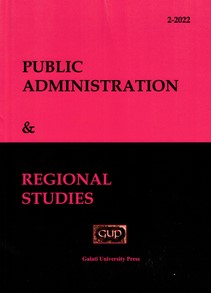ECONOMIC RECOVERY GROWTH PLAN AND ECONOMIC DEVELOPMENT IN NIGERIA’S POST-RECESSION ERA
ECONOMIC RECOVERY GROWTH PLAN AND ECONOMIC DEVELOPMENT IN NIGERIA’S POST-RECESSION ERA
Author(s): Musa ZakariSubject(s): National Economy, Agriculture, Energy and Environmental Studies, Economic policy, Economic development
Published by: Editura Universității „Dunărea de Jos”, Galați
Keywords: Economic Recovery; Economic Growth Plan; Economic Development; Voluntary Assets and Income Declaration Scheme (VAIDS) agriculture and food security; energy and industrialization policies In Nigeria;
Summary/Abstract: This study examines the impact of the Economic Recovery and Growth Plan (ERGP) on Nigeria's economic recovery in the post-recession era. The ERGP was introduced in 2017 as a response to the economic recession that hit Nigeria in 2016. The plan aimed to revitalize the country's economy and achieve sustained economic growth through a series of policy measures and reforms. Using a mixed-method approach, this study analyzes the impact of the ERGP on key economic indicators, such as the Voluntary Assets and Income Declaration Scheme (VAIDS); agriculture and food security; energy and industrialization policies. The study finds that both the Voluntary Assets and Income Declaration Scheme (VAIDS); agriculture and food security; energy and industrialization policies have a significant impact on Economic Recovery and Growth Plan (ERGP) on Nigeria's economic recovery in the post-recession era. It is recommended that the government should promote tax compliance by means of enforcing Voluntary Assets and Income Declaration Scheme (VAIDS), as this has the potential to augment government revenue and alleviate the budget deficit. It is recommended that the government should prioritize investment in the agricultural sector, specifically in irrigation, mechanization, and research and development to enhance crop yields and augment productivity for the purpose of achieving food security. It is recommended that the government should offer inducements to the private sector to encourage investment in manufacturing and industrialization. Such incentives may include tax exemptions and improved access to financial resources.
Journal: Public Administration & Regional Studies
- Issue Year: 16/2023
- Issue No: 1
- Page Range: 99-118
- Page Count: 20
- Language: English

